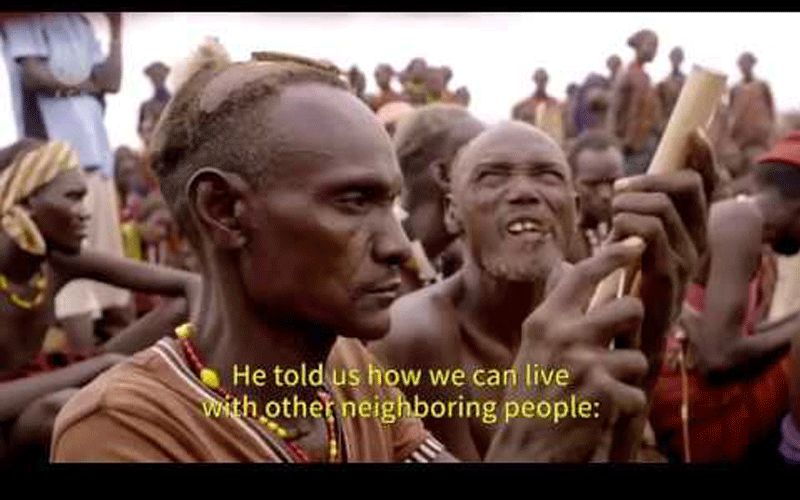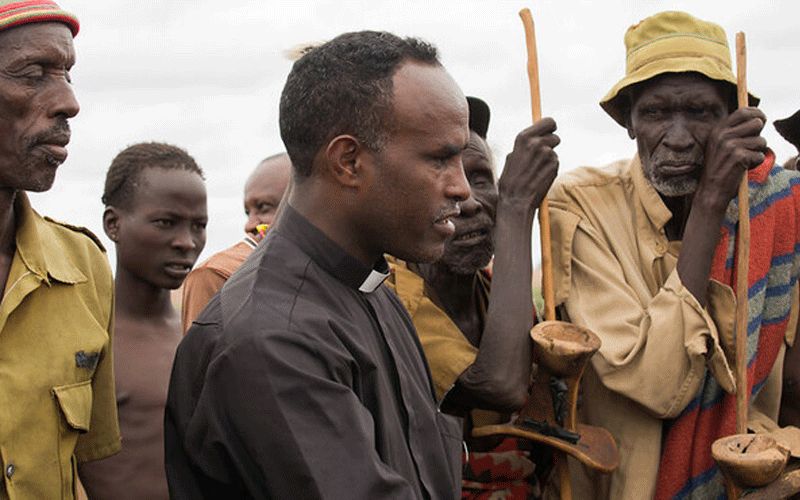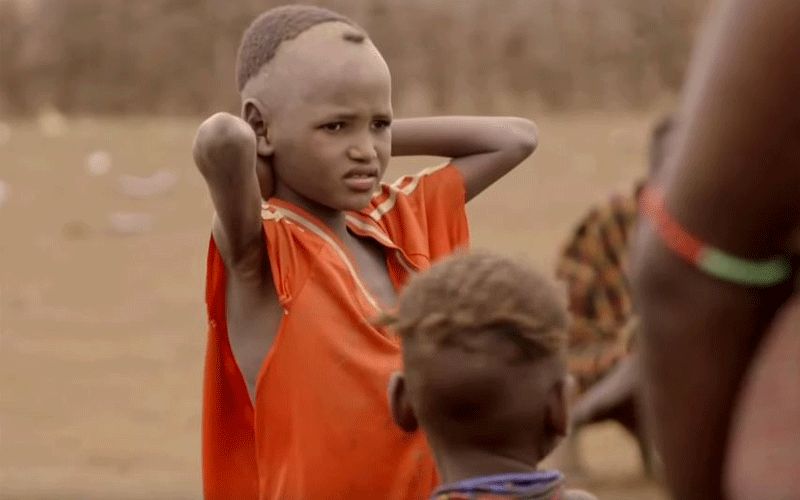
She further says that the Ethiopian Cleric is also “a happy man who says that you can learn to love a culture that is not yours, embrace and accept the unknown: smells, tastes, even the challenges of living in this seemingly unlivable place. And it changes you.”
Fr. Goesh is a popular man among the Dassanech where the village chiefs introduce him as a peacemaker, according to the Polish film director.
“He told us how we can live with other neighboring people. He taught us what peace means… Father Goesh is our brother. He is a man of God. He taught us how to worship God,” Wolnik told CAN officials, narrating the responses she obtained from the village chiefs who confirmed their interactions with Fr. Goesh.
The Polish filmmaker who is a famed author of several dozen documentary films made in cooperation with Catholic Radio and Television Network (CRTN) and the pontifical foundation ACN said that her new film, “Ethiopia – From every clan” aims to show the place of spirituality in a unique tribe forced to survive the changing times, including climate change that threatens their survival.
(Story continues below)
“The film aims to show a unique ethnic group, which, while still living a very traditional lifestyle, and fighting bloody battles with local tribes, finds itself, very suddenly, on a collision course with change, including climate change with the inevitable drought and hunger that follows and needs a guide, capable of helping this group to confront and deal with this reality; not only in material terms, including education, agriculture and the knowledge needed to survive in a changing world, but also in spiritual terms, how to stop waging destructive wars, whom to entrust one’s life to,” Wolnik says.
The filmmaker who has produced documentaries in 16 countries, including Angola, Brazil, Cambodia, Indonesia, Myanmar and Pakistan says that the rough ordeal during her first visit to Omorate inspired the making of the film.
She says that getting to the Omo River valley, along the Kenya and South Sudan border, where the first ever decent road had just been constructed was not easy.
“We arrived at our destination in the evening, after many hours, and were put up in a small guesthouse, built by zealous young Priests who had forgotten about ventilation, window netting or mosquito nets,” she further says.
“Of course, we did not expect electricity. Outside, apart from the mosquitoes, you would trample on scorpions on your way to bed, meet a few poisonous snakes, as well as hyenas keenly taking advantage of the lack of any fence. Forty degrees centigrade – even at night – no air, means no sleep,” she narrates.
She adds, “Abba Goesh seemed to be profoundly convinced that God had sent him to this place and to the people inhabiting this land. It seemed impossible to live here without such a belief. After those first hours and conversations with him, I knew for certain that we would be back with a camera.”

She says that her actual filming experience got worse with the harsh climate, rough terrain and untrusting villagers who only bended with the intervention of Fr. Goesh.
The film was, during the 23-30 September festival, selected and nominated in the best documentary category for the 23rd Religion Today Film Festival in Trento, Italy.
Wolnik says that Omorate is the Acts of the Apostles lived today.
“Paul dreamed of a Macedonian man who asked: Cross over to us and help us. That is how the evangelization of Europe began,” she recalls, and adds, “Father Goesh travelled through these lands, from Kenya to Adigrad, and met the Dassanech tribe, still battling with local tribes, with whom no one had dared enter into dialogue. He felt that he should try to live in this difficult land.”
According to the Polish filmmaker, Biblical Paul and Fr. Goesh were both convinced that God was sending them to unknown lands and peoples, “with whom they had to find a common language, in order to bring them the good news that also brings peace.”
Such places and such people, Wolnik says, “beg us to ask ourselves: do we also have this ardour, anxiety, for those beyond the reach of the Gospel? And do we, who live in peace and comfort, care for people who continue to experience such great marginalization and poverty?”
“Omorate provokes both delight and reflection. I hope our film does, too,” she says.
Agnes Aineah is a Kenyan journalist with a background in digital and newspaper reporting. She holds a Master of Arts in Digital Journalism from the Aga Khan University, Graduate School of Media and Communications and a Bachelor's Degree in Linguistics, Media and Communications from Kenya's Moi University. Agnes currently serves as a journalist for ACI Africa.












